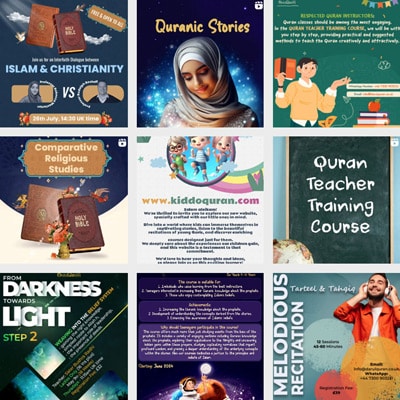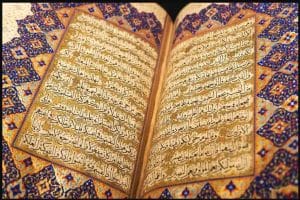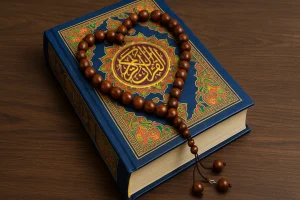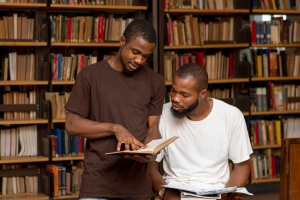May Allah have mercy upon the person who makes closed connection between two of our lovers. So oh believers be friends together and treat kindly.
Muhammad ibn Ali al-Baqir (as)
Table of Contents
ToggleThe Holy Quran as the central religious text of Islam provides guidance on various aspects of life including the relationship between society and government. Tafsir the scholarly interpretation of the Noble Quran plays a crucial role in understanding the Quranic teachings pertaining to society and government. This paper explores the Tafsir of the Grand Quran in relation to society and government highlighting key themes and principles.
Historical Context of the Quranic Verses
The historical context of the Quranic verses about society and government is essential for understanding their meaning and relevance in the present day.
These verses were revealed at a particular time and in response to specific events and circumstances in the life of the Prophet Muhammad (S) and the early Muslim community. Thus, understanding the context in which these verses were revealed provides insight into their intended meaning and application.
One of the key figures in the historical context of the Quranic verses about society and government is the Prophet Muhammad (S) himself.
As the recipient of the Quranic revelations, his life and actions provide important context for understanding the verses related to societal and governmental matters.
The Prophet Muhammad’s role as a leader, lawmaker, and statesman is crucial in understanding the practical application of the Quranic teachings in the realm of society and government.
Additionally, the early Muslim community, or the Sahabah, provides valuable historical context for the Quranic verses about society and government.
The actions and decisions of the early Muslims, as guided by the Prophet Muhammad and the Glorious Quran, offer insight into how these verses were implemented in a real-life context. Understanding the historical context of the Quranic verses about society and government allows for a more nuanced interpretation and application of these teachings in contemporary society.
The impact of understanding the historical context of the Quranic verses about society and government in the field of Tafsir is significant.
It allows for a more comprehensive and accurate interpretation of these verses, which in turn informs the way Muslims understand and apply the teachings of the Sacred Quran in their daily lives.
Moreover, it enables scholars and researchers to contextualize the Quranic teachings within their historical framework, providing a deeper understanding of the socio-political dynamics of the time in which the Holy Quran was revealed.
Furthermore, understanding the historical context of the Quranic verses about society and government is essential for addressing contemporary issues and challenges faced by Muslim communities around the world.
By examining how these verses were implemented in a historical context, Muslims can derive valuable lessons and guidance for addressing modern-day societal and governmental challenges.
It enables the Quranic teachings to be applied in a relevant and impactful manner, contributing to the overall well-being and progress of Muslim societies.
Influential individuals who have contributed to the field of the historical context of the Quranic verses about society and government in the Tafsir include classical and contemporary scholars, historians, and researchers.
Classical scholars such as Ibn Kathir, Al-Tabari, and Al-Qurtubi have made significant contributions to the field of Tafsir, providing detailed exegesis of the Quranic verses related to society and government in their respective works.
Their interpretations are often informed by the historical context of the revelation of the Quranic verses, shedding light on their intended meaning and application in society and governance.
In the contemporary era, scholars and researchers such as Dr. Tariq Ramadan, Dr. Muhammad al-Ghazali, and Dr. Nasr Hamid Abu Zayd have contributed to the field of Tafsir, focusing on the historical context of the Quranic verses related to society and government.
Their works provide valuable insights into how the Quranic teachings can be understood and applied in the contemporary socio-political landscape, drawing connections between the historical context of the Quranic revelation and present-day challenges.
Moreover, historians and researchers have played a crucial role in uncovering the historical context of the Quranic verses about society and government, providing valuable insights into the socio-political dynamics of the time of the Prophet Muhammad.
Their work has enriched the field of Tafsir by offering a deeper understanding of the context in which these verses were revealed, thereby informing more accurate and meaningful interpretations of the Quranic teachings related to society and government.
The historical context of the Quranic verses about society and government is essential for understanding and applying the divine guidance of the Glorious Quran.
It allows for a more nuanced interpretation and application of these verses, informing contemporary discourse and action related to societal and governmental matters.
By studying the historical context of these verses, scholars, researchers, and Muslims at large can derive valuable lessons and guidance for addressing modern-day challenges and opportunities in society and governance.
The contributions of influential individuals in the field of Tafsir have enriched our understanding of the historical context of the Quranic verses about society and government, paving the way for future developments and advancements in this critical area of Islamic scholarship.
As such, continued research and study in this field will contribute to a more comprehensive and relevant application of the Quranic teachings in addressing the evolving needs and dynamics of Muslim communities around the world.
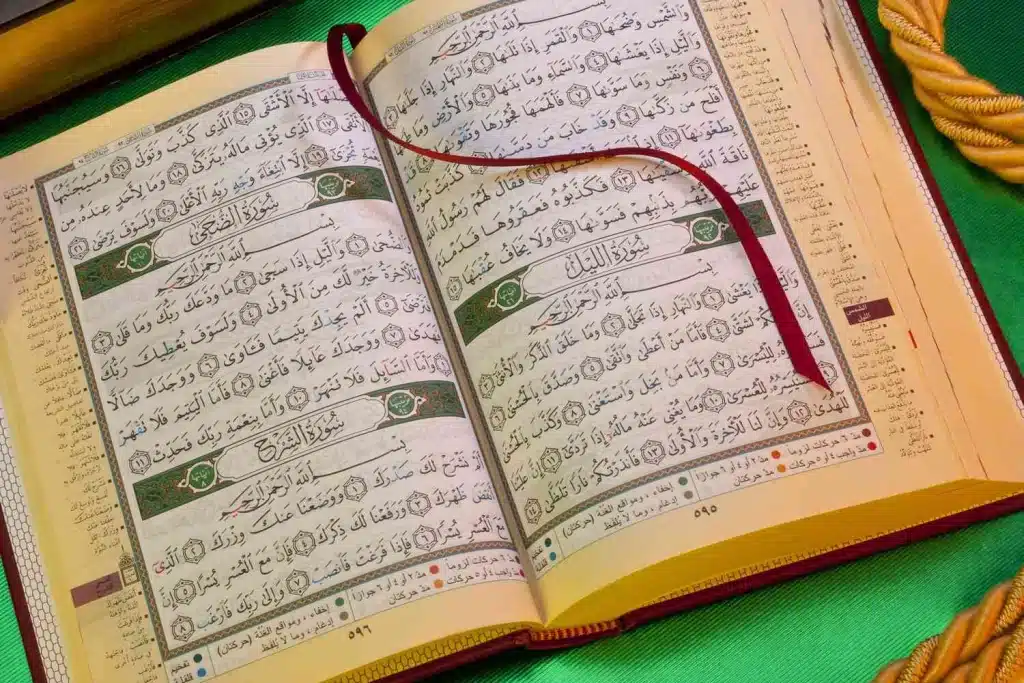
Principles of Justice and Equality
Justice and equality are fundamental principles that underpin any functioning society and government. In the Tafsir of the Holy Quran, these principles are emphasized as essential for maintaining a just and harmonious society.
The Grand Quran, as the divine guidance for Muslims, provides clear guidance on the importance of justice and equality in all aspects of life, including governance and societal interactions.
One of the key principles in the Sacred Quran regarding justice and equality is the idea that all individuals are equal in the eyes of God. Regardless of race, ethnicity, social status, or wealth, every person is deserving of justice and fair treatment.
This principle is reiterated in numerous verses throughout the Glorious Quran, emphasizing the importance of treating others with fairness and compassion.
From a governmental perspective, the Holy Quran emphasizes the need for rulers and leaders to uphold justice and equality in their governance. Leaders are entrusted with the responsibility of maintaining law and order, ensuring that everyone is treated fairly and that their rights are protected.
The Quranic teachings advocate for leaders to act with integrity and to uphold the principles of justice in their decision-making processes.
Furthermore, the Holy Quran highlights the importance of providing equal opportunities for all members of society. In a just and equitable society, individuals should not be discriminated against based on their background or circumstances.
This principle extends to all aspects of life, including education, employment, and access to resources.
The Grand Quran encourages the creation of a society where everyone has the opportunity to thrive and contribute to the betterment of the community.
In addition, the Holy Quran advocates for the fair and equitable distribution of wealth and resources. The concept of Zakat, or obligatory charity, is a fundamental aspect of Islamic teachings and is aimed at alleviating poverty and redistributing wealth to those in need.
This principle underscores the importance of addressing economic inequality and ensuring that everyone has access to the basic necessities of life.
From a persuasive standpoint, it is clear that the principles of justice and equality outlined in the Tafsir of the Glorious Quran are essential for the well-being of society and the functioning of government.
When these principles are upheld, it leads to a more harmonious and stable society, where individuals feel valued and respected.
By adhering to these principles, governments can ensure that their citizens are treated fairly and that their rights are protected, ultimately leading to a more prosperous and cohesive society.

Role of Government in Maintaining Order
The Quranic tafsir also addresses the role of government in maintaining social order. The Holy Quran recognizes the necessity of a just and competent government to establish peace and stability in society.
In Surah An-Nisa (4:58) it states “Indeed Allah commands you to render trusts to whom they are due and when you judge between people to judge with justice. Excellent is that which Allah instructs you. Indeed, Allah is ever Hearing and Seeing.”
This verse emphasizes the importance of trust and justice in governance. Tafsir scholars emphasize that a government’s primary responsibility is to uphold the trust placed in them by the people and to ensure fair and just judgments.
They also highlight the Sacred Quran’s emphasis on consultation and consensus-building in decision-making processes indicating the importance of participatory governance.
Accountability and Good Governance
The Quranic Tafsir also emphasizes the concept of accountability and good governance. In Surah Al-Ma’idah (5:8) it states “O you who have believed be persistently standing firm in justice witnesses for Allah even if it be against yourselves or parents and relatives. Whether one is rich or poor Allah is more worthy of both.”
This verse highlights the Holy Quran’s call for individuals to stand firm in justice even if it means going against their own interests or the interests of their close ones.
Tafsir scholars interpret this verse as a reminder to rulers and governments that they are accountable to Allah and should prioritize justice over personal or political gains. Good governance according to the Quranic teachings requires transparency accountability and the welfare of the people as the primary focus.

The Tafsir of the Holy Quran provides valuable insights into the Quranic teachings on society and government. It emphasizes the principles of justice equality and good governance as essential foundations for a harmonious and prosperous society.
The Quranic verses provide guidance on the role and responsibilities of governments in maintaining social order ensuring justice and being accountable to the people.
By studying the Tafsir we can gain a deeper understanding of the Holy Quran’s teachings on society and government and apply them in contemporary contexts.
In conclusion, the Tafsir of the Holy Quran provides a rich and nuanced perspective on the themes of society and government.
By drawing on the Quran’s foundational principles and the insights of its exegetes, this essay has demonstrated the relevance and enduring significance of the Quran’s teachings for the organization and governance of human societies.
The Tafsir’s emphasis on unity, consultation, justice, and the pursuit of the common good offers valuable insights for contemporary discussions on social and political issues.





